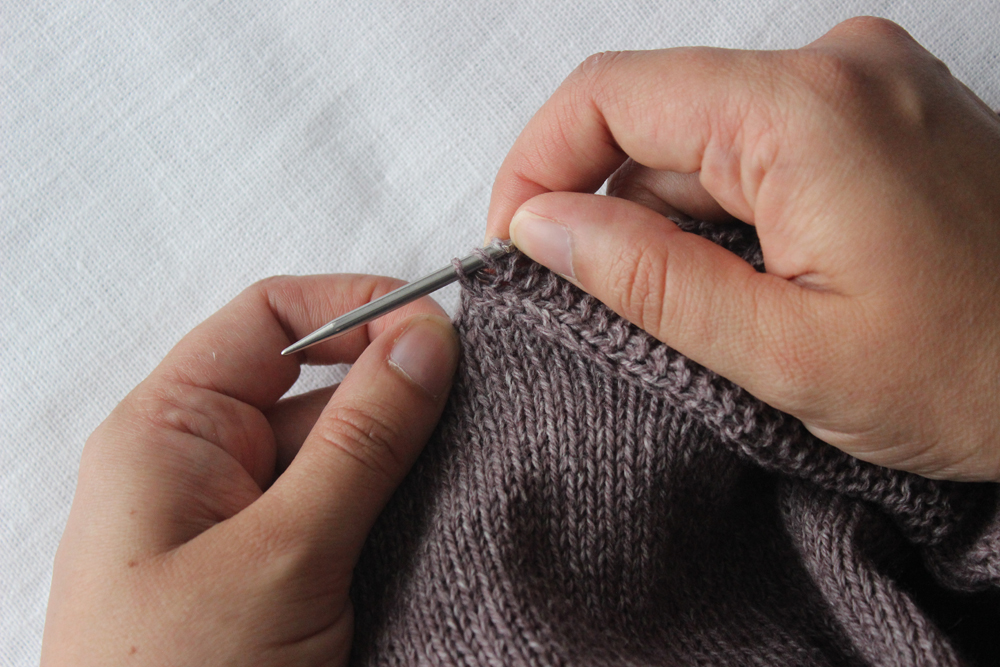
Jigsaw puzzles can be a great way to get a digital detox. They're fun and also good for the body and brain. They're also a great way for you to spend quality time with your loved one.
jigsaw puzzles are a great digital detox
Whether you're bored by television, the internet, or the constant barrage of messages, jigsaw puzzles are surprisingly beneficial for the body and mind. They have been shown to reduce stress and improve IQ. They improve your ability to think clearly and have a positive effect on patience, flexibility, reflection, as well as patience. The best part about jigsaw puzzles is that they're great for both young and old.
Jigsaw puzzles are particularly great for young adults who are taking a digital detox. They are a relaxing distraction that can easily be done whenever the brain needs it. A sense of order is also brought to the brain by them. You can even complete a puzzle in one go.

They enhance cognition
Jigsaw puzzles are great for improving memory and cognitive skills. The brain works simultaneously on both sides, so it is easy to solve puzzles and recognize shapes. Jigsaw puzzles are especially effective in helping people with dementia connect with one another. You can also increase social skills through collaboration between puzzlers. Seniors who collaborate to solve a puzzle together will find the right pieces for each other and feel proud when they complete it.
Engaging in challenging activities can help improve cognition. This will help you push your own cognitive limits and increase your enjoyment. To do this, you can challenge yourself by increasing difficulty in your jigsaws. Too easy mind games can lead to a loss of cognitive function. Your mental health will be affected more if you increase the difficulty of your puzzles than if you do the same level of puzzles.
They are good news for your body
Jigsaw puzzles are great for adults. They can improve your mental health, and lower stress levels. Puzzles improve brain activity and release dopamine, which improves mood, memory, and motivation. Puzzles are linked with increased longevity and a decreased risk of Alzheimer's. The reason behind this connection between puzzles and improved brain health is that puzzles stimulate the brain and ward off plaque, a marker of Alzheimer's disease.
Jigsaw puzzles are a way to stimulate both the left- and right brains at the same moment. The brain's left side is responsible to logical thinking and the right for creative thinking. Solving puzzles stimulates both the left and right brains, increasing problem-solving skills as well as attention span. Bill Gates, Microsoft's billionaire founder, acknowledged that puzzles are something he enjoys and is good for his brain health.

They are fun
Adult jigsaws are a great way to relax and have fun. There are many options available, for different interests. Many of these puzzles have a lot of illustrations, which makes them ideal for framing as art.
Jigsaw puzzles are great for working out the brain. The left side of your brain is the logic, and the right is the creative. Puzzles can increase mental agility and problem solving skills by using both the left and right sides of your brain. Bill Gates, a billionaire, admits to being a puzzler.
FAQ
What are some competitive hobbies?
Competitive sports include running, swimming, cycling, golfing, tennis, etc.
They're a great way to get social interaction and are enjoyed by those who love physical activity.
If your hobby involves physical activity, you will likely find other people who share it.
This could include joining a club/group that allows you to play sports together regularly.
Participating in group games, which involve playing alongside others, is another option.
These include cricket, football, netball, hockey, netball, soccer, rugby, cricket, rugby, batsball, hockey, volleyball, badminton squash, handball and table tennis.
There are many types competition.
Some competitions are only for recreational purposes.
Others are designed for competitors to prove their skill.
Some are even designed to reward outstanding performance.
These cases result in prizes for the winners.
Other competitions are meant to test competitors' strength and stamina.
These are known as endurance events.
For example, marathon races, triathlons, Ironman Triathlon, etc.
Before participating in these events, athletes often train hard.
They will be required to follow a rigorous training program in order to prepare mentally and physically.
They may also need to spend some time away from home during preparation.
It is important to keep in mind that not all athletes can compete in every event.
What are some free resources I can use to learn more about hobbies
Many websites are dedicated to helping people find new hobbies.
Here are some favorites of ours:
www.trythisathome.com - This site provides a list of over 100 different hobbies. It also provides information on how to get started in each one.
www.hobbyfinders.org offers a huge database with thousands of activities. You can search for your interests, skills, location, and many other criteria.
www.indiebazaar.co.uk - IndieBazaar is an online marketplace designed specifically for independent artists and musicians. You will find hundreds of products that range from artwork to music gear on the site.
www.pinterest.com/explore/hobbies - Pinterest is a social media network that lets users "pin" images they find interesting onto their boards. Boards let users organize what they like into particular categories.
www.reddit.com/r/Hobbies: Reddit, another social media platform, allows users to post links to articles and videos. Users can vote on the posts they consider most valuable.
What types of hobbies are suitable for introverts?
Introverts have the ability to focus on one thing at a time. They tend to prefer solitary activities such as reading, writing, playing music, watching movies, etc.
They also enjoy spending quiet time alone. However, they don't like socializing all day. They can even become bored when they're surrounded by people.
This is why introverts often choose hobbies that require them to be alone. An introvert might like to read, listen to music, take photographs, paint, write poetry, or even create art.
Many introverts choose to live alone. They can concentrate on their hobby without being distracted.
What are some good hobby ideas?
Hobby Ideas for People who Love to Learn and Teach Others.
Hobbies can allow you to be creative and have fun while learning.
Although there are many hobbies to choose from, they all share some common characteristics. They are usually enjoyable activities that don't require a lot of effort and can be very economical.
They often involve helping others, such as teaching an instrument to someone or building an airplane model.
Even though you might not think of yourself to be a teacher or a tutor, chances are there are things you can do that could help someone else.
Consider starting a hobby to use your creativity to help others.
What's a hobby?
Hobby for children is anything they enjoy doing outside of work. You might find them interested in drawing, building things, painting, writing stories, playing with toys, listening to music, reading books, watching TV, and playing computer games. They may also like to play soccer, football, basketball, cricket, rugby, baseball, and hockey.
Many parents are concerned that their children may get into trouble if allowed to do as they please. It is not true. If your child is safe and doesn't cause harm to themselves or anyone else, they won't get into trouble.
It is important that people remember that simply because they love doing something does not mean they will always do it. If they are passionate about drawing but hate writing, they might choose to draw pictures over writing.
There are many hobbies to choose from, so it's up you to find the one that interests you most.
What is the cost of a hobby?
Hobby costs nothing except time. It can take many years to accomplish what you desire if you are serious about it.
However, there is something that can help. It's called 'passion.' If you have passion for whatever it is you do, you will find it easier to put in the hours required to make progress.
You may become addicted to the activity once you have put in enough hours. This is when the real fun begins. Because you're doing something you like and it keeps getting better. This will mean that you will have likely made significant improvements by the end.
Don't be too concerned about how long it takes. Don't be afraid to try. You may be surprised!
Statistics
- The intensity of the dialogue partners' bond at the end of the forty-five-minute vulnerability interaction was rated as closer than the closest relationship in the lives of 30 percent of similar students. (time.com)
- Almost 80% of people claim to have no hobby. (hobbylark.com)
- A new survey by Pew Research Center of teens ages 13 to 17 finds that 36% of girls feel tense or nervous about their day every day; 23% of boys say the same. (pewresearch.org)
- Studies show that just six minutes of reading can reduce stress levels by 60 percent. (oberlo.com)
- The Role of the Mind in Sex, Dating, and Love: Men in the “humor” condition received phone numbers from 42.9% of the female participants and were refused 57.1% of the time. (time.com)
External Links
How To
How to Find the Right Hobby for Me
Asking yourself questions can help you determine if your hobby fits you.
-
Do I enjoy doing it?
-
Does it give me pleasure?
-
Do you think it's something I would enjoy doing when I get older?
-
Am I good at it?
-
Are there ways to improve?
-
Would I recommend this to anyone?
-
Will it bring you happiness?
-
Can it help me to relax
-
It will make me feel better about my self?
-
What skills will I gain from it?
-
Can it help me make new friends?
-
Will it allow me to express my creativity?
-
It will it give me the chance to learn new things?
-
Will it give me confidence?
-
Will it provide me with a sense of achievement?
-
It could lead to financial success.
-
It will allow me to travel.
-
Will it let me explore new areas?
-
Is it going to encourage me?
-
Will it inspire me to work harder?
-
Can it motivate me and help me succeed?
-
Do I have to take part in activities that I don't normally think of?
-
Can it be a challenge?
-
It could be fun.
-
It will keep me fit.
-
Will it save money?
-
It will it lower stress levels?
-
Is it going to stop me from getting bored?
-
Do you think it will help me save time?